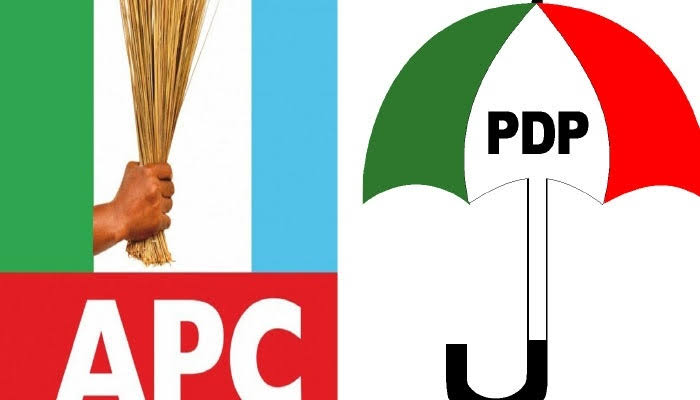In a development that has sent shockwaves through the Nigerian political landscape, the Canadian Federal Court on June 17, 2025, upheld a historic immigration tribunal ruling that effectively designated Nigeria’s two leading political parties the ruling All Progressives Congress (APC) and the main opposition Peoples Democratic Party (PDP) as “terrorist organizations” under Canadian law. The court’s decision came in the context of an asylum case filed by Douglas Egharevba, a former member of both parties, whose application was denied on the basis of membership alone, with no personal involvement in violent acts substantiated. This unprecedented conflation of mainstream political affiliation with terrorism has raised fundamental questions about democratic legitimacy, international relations, and the future of political inclusion for Nigerians at home and abroad.
Under Canada's Immigration and Refugee Protection Act (IRPA), specifically sections 34(1)(b.1) and 34(1)(f), individuals affiliated through membership with organizations associated with terrorism or subversion are deemed inadmissible to Canada. Justice Phuong Ngo, in her judgment, affirmed the lower Immigration Appeal Division’s finding that the APC and PDP were implicated in widespread political violence, electoral subversion, and intimidation particularly referencing events during the 2003 state elections and 2004 local polls. Crucially, no evidence tied Egharevba personally to violence yet the ruling held that mere membership was sufficient grounds for inadmissibility, establishing a legal precedent that treats political affiliation as an act of terrorism.
The PDP has vociferously denounced the court’s verdict as “misinformed, biased, and lacking evidence,” urging its outright dismissal. Deputy National Youth Leader Timothy Osadolor stressed that while some individuals might have engaged in wrongdoing, it is unjustifiable to label entire political parties as terrorist organizations. He urged Canadian authorities to focus on individual allegations rather than sweeping generalizations that cast a shadow over millions of ordinary Nigerians engaged in peaceful political activity.
On its part, the APC’s spokesman, Senator Ajibola Basiru, condemned the judgment and went as far as calling the presiding judge an “ignoramus.” He argued that Nigeria’s political reality should not be adjudged in a foreign court and insisted that the APC operates within Nigeria’s democratic framework. According to him, the party does not derive its legitimacy from Canadian law and will continue to function as a lawful political entity within Nigeria’s constitutional order.
Former NNPC communications chief Olufemi Soneye described the ruling as a political earthquake and a dangerous precedent that could erode democratic norms globally. He warned that it blurs the line between dissent and extremism, risks diplomatic rifts, and could discourage young Nigerians from political participation due to fears of travel restrictions and visa denials. Soneye stressed that if such designations become normalized, legitimate political expression could be stifled under the guise of counterterrorism.
Abuja-based lawyer Gabriel Egbule Jnr interpreted the ruling as a reflection of global concerns over electoral malpractice in Nigeria’s politics, noting that the world is paying close attention to the country’s democratic processes. He argued that while foreign courts may overstep in some judgments, Nigeria must acknowledge that recurring election violence and credibility issues have contributed to its image problem abroad. A senior government official also indicated that the Ministry of Foreign Affairs would verify the ruling’s authenticity and issue a formal diplomatic response.
The implications for Nigerians abroad are immediate and severe. Visa denials and asylum rejections could become routine for those affiliated with the APC or PDP, with Canadian and potentially other Western authorities empowered to deny entry solely on the basis of political membership. This introduces the risk of peaceful, law-abiding Nigerians being branded as terrorists, with far-reaching consequences for their careers, studies, and family reunification efforts.
The decision could also create a chilling effect on domestic political engagement, especially among the youth. Fear of punitive travel or migration consequences may deter young people from joining political parties, robbing Nigeria’s democracy of fresh voices and much-needed generational renewal. Such disengagement would leave political spaces dominated by older elites, further entrenching the very systems that many young Nigerians seek to reform.
Diplomatically, Canada’s action risks straining bilateral relations. By equating Nigeria’s two dominant political parties with terrorism, it challenges the legitimacy of the country’s democratic system in the eyes of the international community. This move could complicate future cooperation between both countries on trade, security, and development, while emboldening other states to adopt similar stances.
The ruling also fits into a wider pattern of mounting frustration among foreign observers over Nigeria’s governance and electoral practices. Recurring political violence, allegations of vote-rigging, and a lack of transparency in party structures have fueled skepticism about Nigeria’s commitment to credible democratic processes. Unless these issues are addressed through comprehensive reforms, Nigeria’s global reputation will remain vulnerable to damaging judgments from abroad.
Past immigration trends suggest that the effects could be significant. Canadian data shows that politically affiliated Nigerians have historically faced higher visa refusal rates, particularly in cases linked to allegations of violence or human rights abuses. In the past two years alone, Canada denied multiple asylum claims from former party members and public officials, citing political affiliations as grounds for inadmissibility. This latest ruling could make such outcomes more frequent and automatic.
For Nigeria to respond effectively, the Ministry of Foreign Affairs should issue a strong diplomatic protest, emphasizing the danger of conflating political affiliation with terrorism. The government must also accelerate electoral reforms to address voter intimidation, ballot integrity, and the violence that mars elections. Political parties should take active steps to improve transparency, condemn violence, and enforce internal discipline, while civil society must lead advocacy campaigns clarifying the distinction between peaceful political membership and violent extremism. Without swift and strategic action, even Nigerians who have done nothing more than join a political party could find themselves unjustly stigmatized on the global stage.
Oluebube A. Chukwu PhD, writes from Umuahia.

